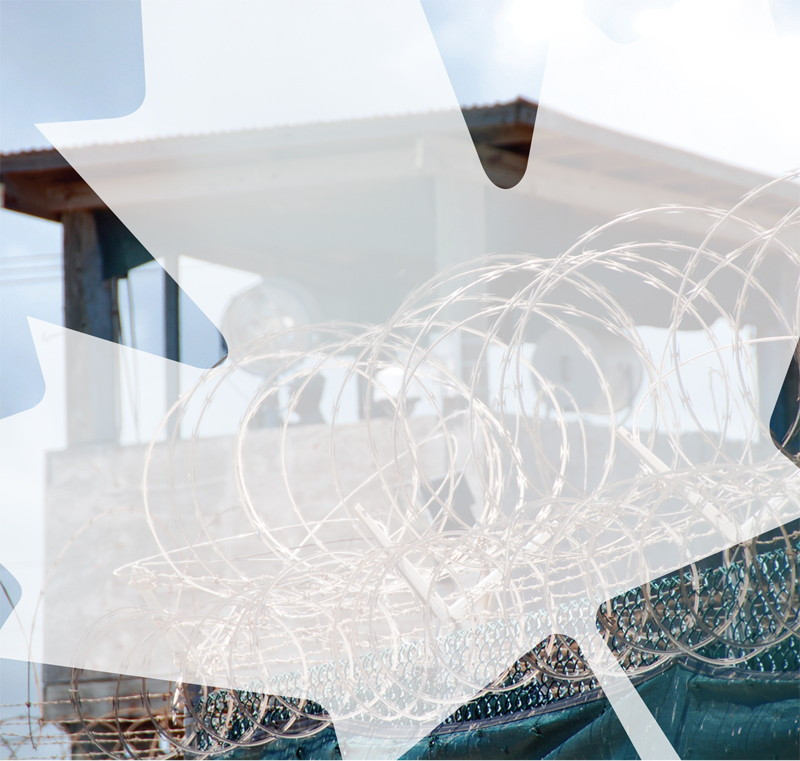Canada legitimizes Guantanamo Bay ‘justice’
Case of Omar Khadr reveals Canadian complacency in an unjust system
The story of Omar Khadr has now become a familiar one to many: a Canadian citizen, captured in Afghanistan in July 2002 at the age of 15, and whisked off to Guantanamo Bay, the U.S.‘s most notorious prison.
In 2010 he plead guilty in a plea deal, which also allowed him the possibility of return to Canada.
As of Sept. 29, 2012, Omar Khadr is in a Canadian jail.
Online news commentators and the nation at large argued bitterly on the issue. It was during these over-simplified debates, especially among journalists and columnists, that the term “convicted war criminal” was repeated when describing Khadr.
I realized that throughout this case, the Canadian government has successfully legitimized the American “justice” system.
In 2001, the Bush Administration created military commissions that existed outside the U.S. justice system and military justice system.
The entire point, from the beginning, was to hold prisoners outside the jurisdictions of these courts, thus avoiding scrutiny and accountability. It was a place of indefinite detention for anyone deemed a terrorist “suspect.”
It was also a place where torture by its new name, “enhanced interrogation,” occurred.
Detainee documents published by WikiLeaks showed that indeed, there were no limits to what the U.S. considered a terrorist “suspect.”
Over 150 detainees were found to be completely innocent, yet detained for years without charge, many still imprisoned at the time those documents were released.
The U.S. Supreme Court intervened on three occasions in landmark cases that would shed light on the legal black hole that had been established there, such as the lack of habeas corpus (the right to challenge unlawful detention).
The U.S. Supreme Court would also rule in 2004 that Guantanamo did not adhere to the U.S. Constitution, nor the Geneva Conventions.
Khadr was there for nearly all of this.
While other Western governments fought to remove their citizens from Guantanamo, Canada not only willingly complied, but went a step further and interrogated 15-year-old Khadr itself.
Khadr was visited by Jean Chretien’s CSIS in 2003.
Tapes reveal Canadian officials in mid-interrogation, feigning concern for the Canadian prisoner.
Remarkably, one official tells Khadr, “I wouldn’t consider (solitary confinement) to be torture.”
Canada would leave Khadr there, among the torturers, the waterboarders, the held-without-charge detainees, unprotected by the Geneva Conventions in an unaccountable “justice” system, for another nine years.
Surrounded by these extreme examples of abuse and blatant disrespect for international law, in 2010 Khadr was charged under the 2006 Military Commissions Act, and signed a plea deal. Part of the plea included the possibility of return to Canada - in other words, leaving Guantanamo.
At the end of the road, it was not Canada that demanded Khadr serve the remainder of his sentence on Canadian soil - it was Washington.
The Harper Government used the term “convicted war criminal” to describe Khadr.
To say someone has been “convicted” implies the application of law.
When we read this, we assume the conviction happened in a legitimate court. We assume the process was fair and just.
When the Canadian government says it, the words become part of the fabric of a national discussion.
What is left is an oversimplified debate: convicted war criminal or child soldier? Erased are any notions of what Guantanamo Bay represents. Erased, also, is any notion of Canadian involvement or complicity in Khadr’s treatment.
Three Canadian governments refused to stand up for justice, or lawful treatment of a prisoner. They took a different stand: we will not stand up for justice, we will not ask questions about Guantanamo Bay, and we will not challenge the U.S. on what happens at Guantanamo Bay.
For the past 10 years, Canada has stood with the U.S. and fully embraced the existence of this prison, even participated in it.
While our government has successfully established the narrative of our local “convicted war criminal,” it should be lost on no Canadian that we as a nation endorsed the war crimes committed at Guantanamo to arrive where we are today.
Graham Hnatiuk is a political writer and artist. He is the author of the Progressive Winnipeg blog, focusing on local citizen journalism and foreign policy commentary.
Published in Volume 67, Number 7 of The Uniter (October 17, 2012)







